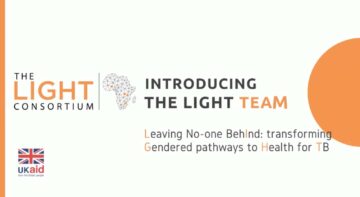Dr Eliya Zulu speaks on the need for African governments to make the requisite socio-economic investments and leverage on the current boom of a youthful population in order to harness the demographic dividend.
Video courtesy Aljazeera English: August 12, 2014
In summary:
Aljazeera: Are African governments prepared for this [youth] population boom that is coming their way?
Zulu: This population boom is a big potential advantage for African governments because we are going to have a very big youthful population and if it is a quality human capital, you can use it to foster development. The problem is that the investments that are going into education and health are very dismal and are not likely to help the continent benefit from the youthful population.
Aljazeera: So what should they [governments] be doing?
Zulu: Firstly, they should have a mindset shift. Move from focusing on basic education to higher education. Right now if you look at East, Southern and Middle Africa, only about 40% of youth attend secondary education. You can’t benefit from the youth when you’re wasting so much of the population. You need to enhance enrolment in secondary education as well as start pushing the numbers to tertiary education. Africa is not doing very well in this aspect and governments need to do that. But they should also go beyond getting numbers into schools. Early marriage is [also] another big problem that we have. In Middle, Central and Western Africa we note that about 40% of girls get married by age 18. The continent can’t harness its demographic dividend or benefit from its youthful population if we continue to waste so many young people. [In addition], it’s not just about getting kids in schools. If you look at countries like South Africa, the enrolment [rate] in schools is very comparable to the numbers in Europe. But there is a very huge problem [with] the quality of education. Therefore, as we get kids into secondary and tertiary education, governments need to focus on the quality of education, skills development, science and technology, and innovation.
Aljazeera: If there aren’t these kinds of reforms and push into education, what is the future of these young people? Could their frustration translate into political unrest?
Zulu: Certainly, if African governments don’t invest in the youth now, in education and other socio-economic reforms that will make sure that this big youthful labour force has jobs, then there is a very high potential that [we] can have [political] unrest. We already witnessed a bit of that in North Africa. Most of these countries have a big youthful population because birth rates declined very rapidly in this region. But because they did not invest in jobs and did not make strategic adjustments in education, reforming the curricular so that [they] can focus on skills development, entrepreneurship and so on, then we had that problem. So, in many African countries, the prognosis for the future is not very bright unless our governments and development partners focus on youth development, and not just doing cosmetic interventions such as giving hand-outs to youth, which is happening in many [African] countries right now.
Related Multimedia




